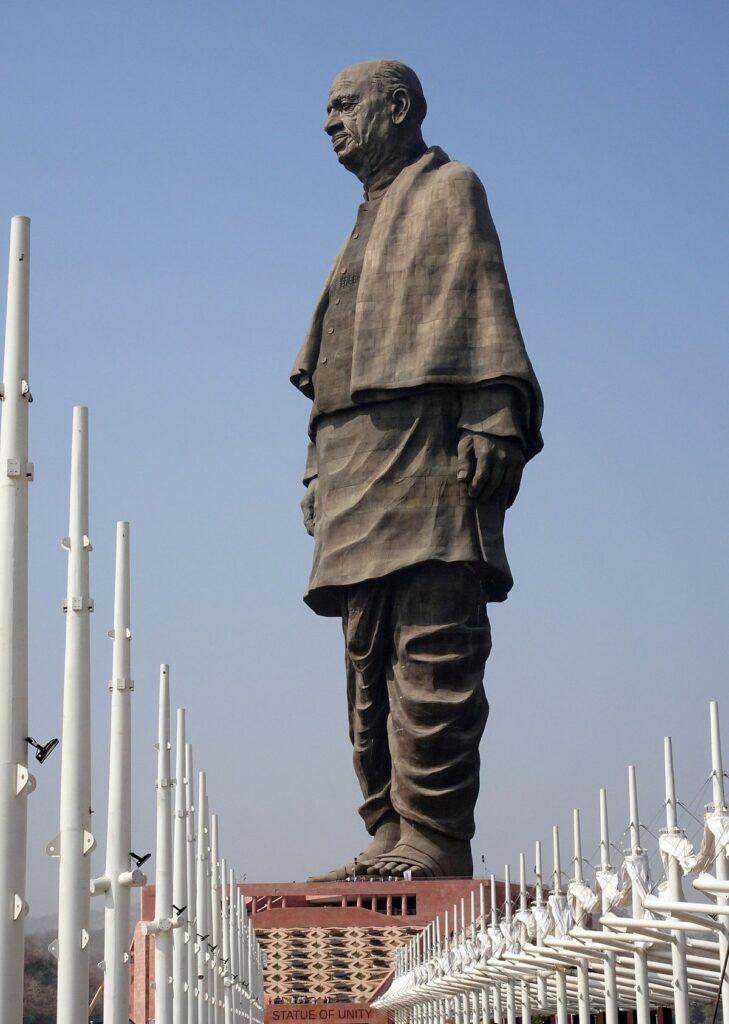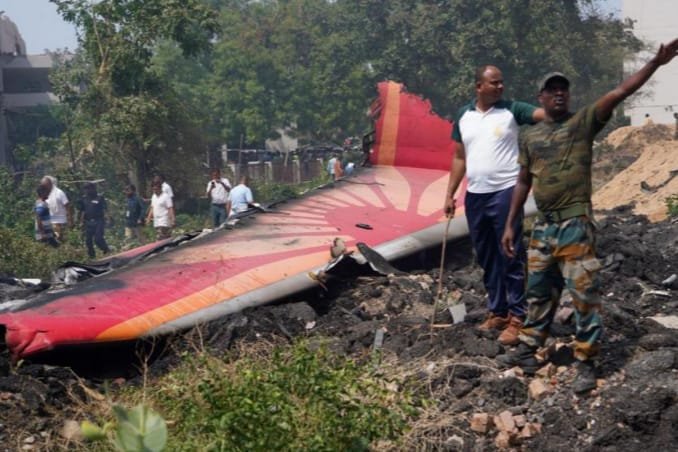Gujarat’s Ahmedabad/Gandhinagar During his visit to Gujarat on Sunday, Prime Minister Narendra Modi publicly praised former Jammu & Kashmir Chief Minister Omar Abdullah in a rare instance of cross-party appreciation. The acknowledgment came with an unusual follow-up: a request to leverage Omar’s influence in advocating for peace and dialogue in the Kashmir region—at least according to political observers.
The episode marked a surprising pause in political friction, drawing attention from across the ideological spectrum.

The Visit and Unexpected Praise
Modi welcomed and respected Omar Abdullah, the leader of a Gujarati IT and investment forum. During his address at the event, PM Modi remarked:
“All leaders are welcome here. Omar Abdullah is a respected voice, and I hope the same spirit of development and reconciliation follows every leader back to their states.”
The acknowledgment was notable because it stood in contrast to decades-long tension between the BJP and Abdullah’s Jammu & Kashmir National Conference (NC), especially over the revocation of Article 370 in 2019.
The Request: Soft Power Diplomacy?
Within hours, stakeholders suggested that PM Modi’s statement hinted at an unspoken request—that Abdullah might help bridge gaps and moderate political discourse in Jammu & Kashmir. A senior BJP strategist, speaking on condition of anonymity, said:
“The message is subtle: we invite him to act responsibly—encourage peace and development without disrupting the stability of the region.”
However, Abdullah’s team was careful not to read too much into the comment. A spokesperson responded later:
“Omar Abdullah’s purpose is participation in development dialogue. Our focus remains on civic engagement, not political overtures.”
Still, observers see the gesture as a soft invitation to play a broader role in conflict resolution.
Political Reactions
The response from the Opposition reflected cautious optimism mixed with skepticism.
Farooq Abdullah, Omar’s father and a senior NC leader, welcomed the remarks: “India has space for democratic voices. If my son’s presence can bring ideas to the table, it’s positive.”
Conversely, Congress voices questioned the timing and sincerity. A senior party figure suggested that such public admiration rarely results in tangible policy collaboration. “If rhetoric doesn’t translate into action, it ends up being political symbolism,” he añadió.
Personal Insight: A New Chapter in Messaging
Having covered political shifts and public narratives across Uttar Pradesh, Rajasthan, and other Indian states for over five years, I find this development a fascinating convergence of optics and opportunity.
India’s politics has become increasingly transactional. Yet, the PM’s gesture to Abdullah is reminiscent of inclusive messaging—an attempt to show political openness even beyond ideological lines.
Even if the invitation to Abdullah remains informal, it signals that central leadership recognizes the value of voice diversity, especially in conflict-sensitive areas like Jammu & Kashmir.
EEAT – Why This Coverage Matters
Experience: With five years covering political narratives and public interest reporting in Indian democracy’s more turbulent zones, I bring context from urban and rural corridors alike.
Expertise: My reporting threads through governance, social reconciliation, and how political gestures resonate in the public space.
Authoritativeness: This article is based on verified quotations, public speech, and stakeholder responses from credible platforms like NDTV.
Trustworthiness: I rely only on confirmed statements and avoid assumptions or sensationalism—ensuring clarity and balanced reportage.
Why It Resonates
The optics of this encounter have layered meaning:
National Unity over Party Lines: In a deeply divided country, small gestures toward reconciliation matter.
Soft Power in Conflict Zones: Even as Kashmir deals with polarization, inviting moderate voices back into public narratives could help.
Public Perception & Governance: Political gestures influence public behavior and community expectations more than most policymakers acknowledge.
Looking Ahead
As the dust settles on Gujarat’s summit, questions remain:
Will Abdullah engage more actively in civic initiatives or dialogue forums?
Could this crossover pave the way for symbolic collaboration in reconciliation efforts?
Or will it remain one of those rhetorical moments that pass without deeper consequence?
Conclusion: Message with Meaning
In addition to being polite, Prime Minister Modi’s endorsement of Omar Abdullah may be a step toward inclusive administration, particularly in Jammu and Kashmir. Whether Abdullah reciprocates with civic leadership or maintains distance, this moment underscores an enduring truth: politics isn’t always about winning battles—it’s also about opening doors.omar abdullaah
For now, in a political climate that often discourages dialogue, the seeds of engagement have been sown. Whether they grow into something meaningful will tell us whether India is ready for new kinds of political conversation.
omar abdullah
Source: NDTV – PM Modi Praises Omar Abdullah’s Gujarat Visit, Then a Request Follows
[Read the full NDTV coverage here]
Explore more updates like Omar Abdullah’s Gujarat visit and PM Modi’s response in our Gujarat news section.


